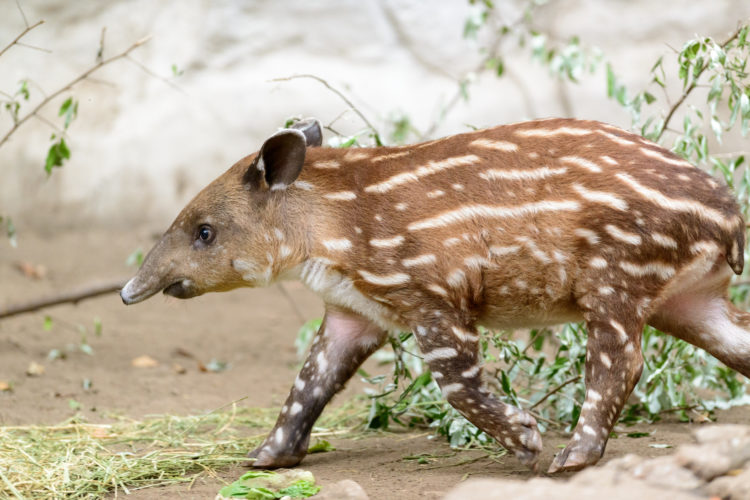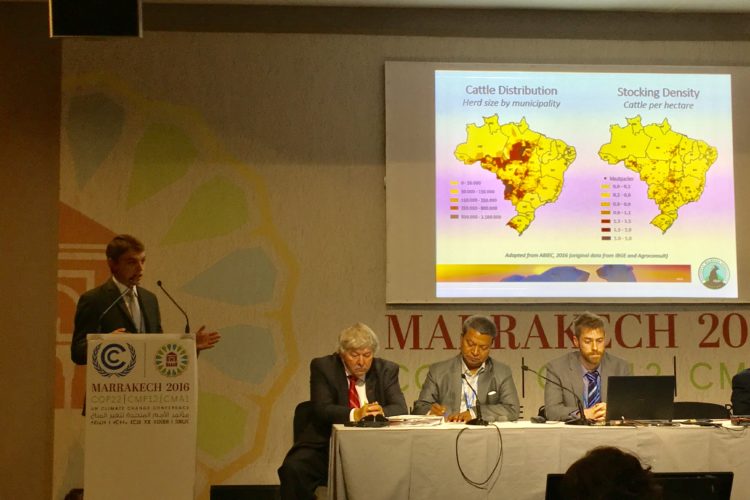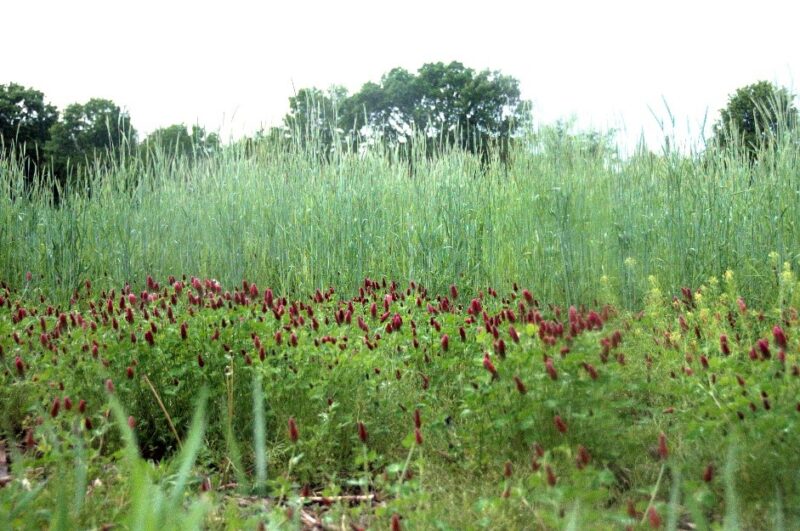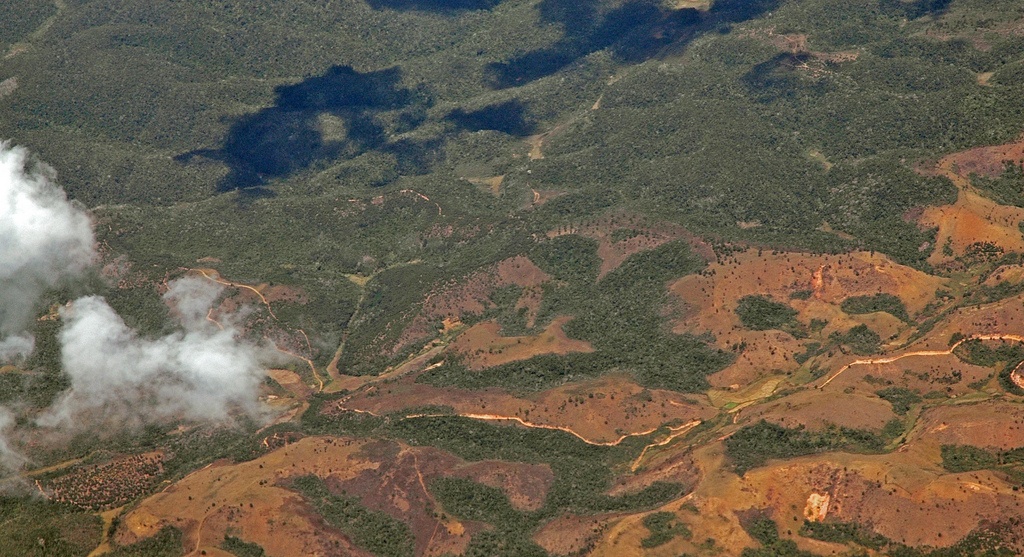The National Wildlife Federation recently co-organized an official side event as part of the United Nations Climate Change Conference in Marrakech. Our event focused on opportunities to improve management practices on farms and ranches around the world, as a way to improve rural livelihoods, reduce the impacts of climate change, and protect wildlife habitat.
Representing NWF as a panelist at the side event, Simon Hall, Manager of NWF’s International Wildlife Conservation team, presented the benefits, opportunities and challenges associated with advancing “sustainable intensification” in the Brazilian cattle sector.

The expansion of cattle ranching remains the leading driver of tropical deforestation, especially in ecologically important regions in Brazil, such as the Amazon and Cerrado (forested savanna) biomes. The expansion destroys wildlife habitat important for the survival of species such as the tapir, a distant forest relative of horses and rhinos. In the past 15 years, over 51 million acres have been lost in the Brazilian Amazon alone.
Unfortunately, the majority of deforestation in Brazil is for extensive cattle ranching, which is characterized by fairly low levels of productivity. The good news is that this also represents a tremendous opportunity for advancing sustainable intensification – the implementation of low-tech practices such as rotational grazing and improved grass mixtures – as a way to double or triple productivity on existing pastures, improve rural livelihoods, and reduce pressures to expand into forested areas.

As Simon highlighted in his presentation, the benefits of sustainable intensification can truly be maximized when these efforts are coupled with commitments by companies, governments and other actors to implement zero deforestation policies. This coupling of initiatives can produce incredible synergies, and generate real win-win outcomes for the environment and industry.
@NWF_Intl in Marrakech is ensuring that forests, farm land and wildlife remain a central part of the conversation at the international climate negotiations. We will continue to provide updates in week two of the negotiations. Stay tuned for more!
Learn MoreLearn more about NWF’s international conservation work.




